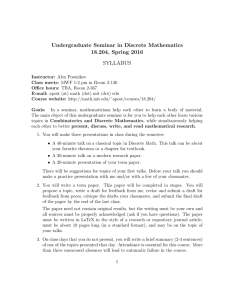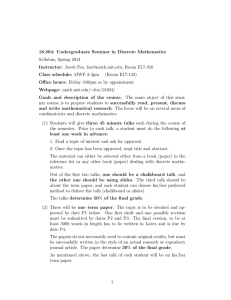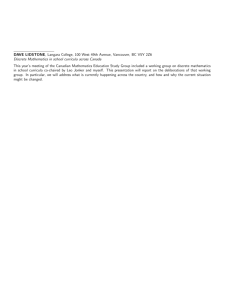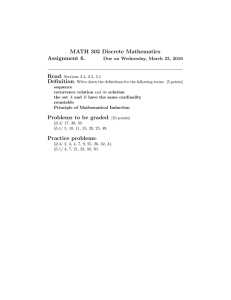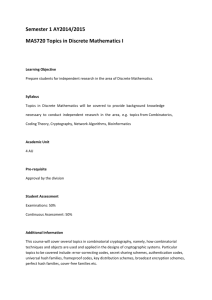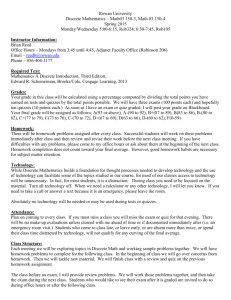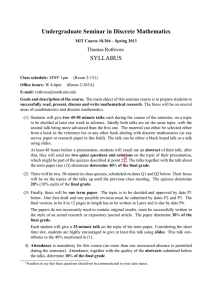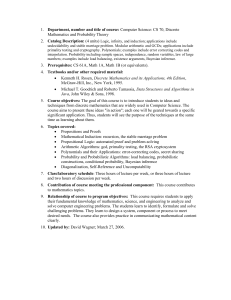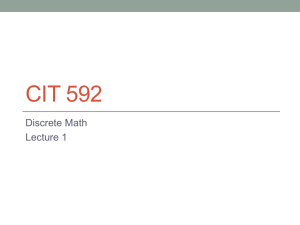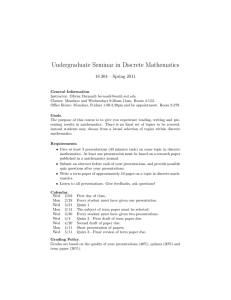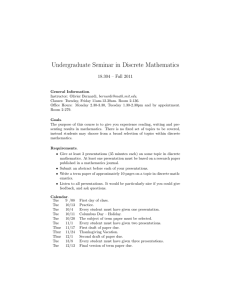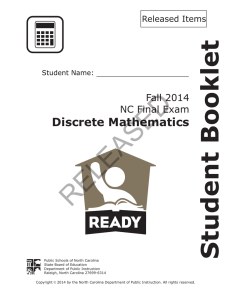Undergraduate Seminar in Discrete Mathematics 18.204, Spring 2015 Syllabus Instructor:
advertisement
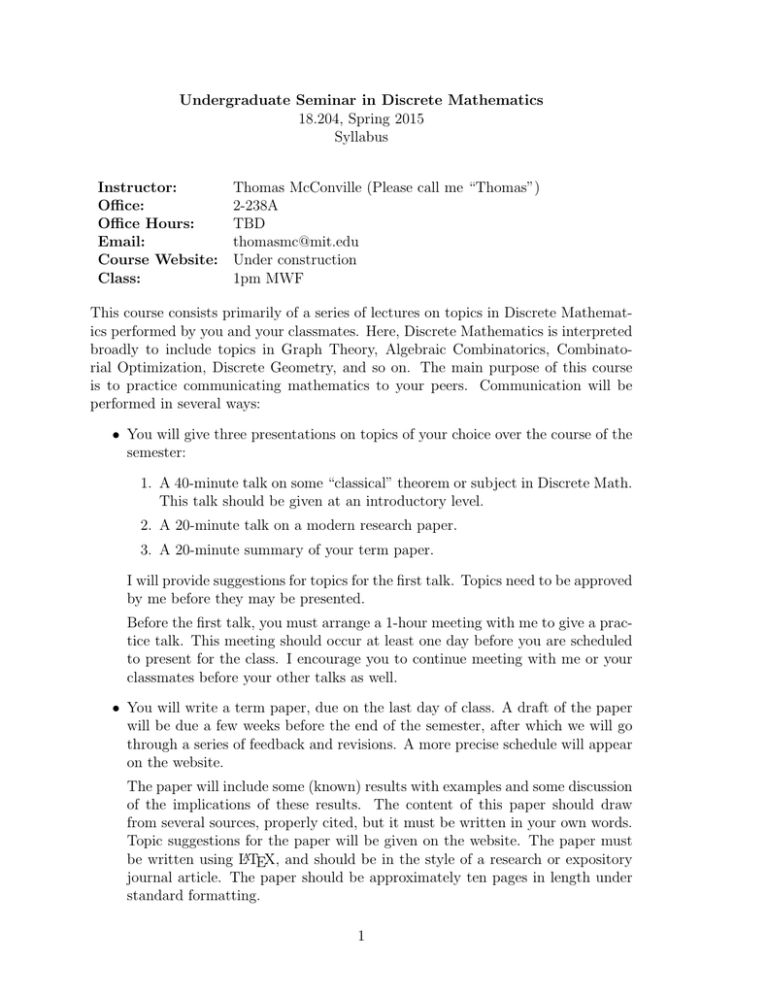
Undergraduate Seminar in Discrete Mathematics 18.204, Spring 2015 Syllabus Instructor: Office: Office Hours: Email: Course Website: Class: Thomas McConville (Please call me “Thomas”) 2-238A TBD thomasmc@mit.edu Under construction 1pm MWF This course consists primarily of a series of lectures on topics in Discrete Mathematics performed by you and your classmates. Here, Discrete Mathematics is interpreted broadly to include topics in Graph Theory, Algebraic Combinatorics, Combinatorial Optimization, Discrete Geometry, and so on. The main purpose of this course is to practice communicating mathematics to your peers. Communication will be performed in several ways: • You will give three presentations on topics of your choice over the course of the semester: 1. A 40-minute talk on some “classical” theorem or subject in Discrete Math. This talk should be given at an introductory level. 2. A 20-minute talk on a modern research paper. 3. A 20-minute summary of your term paper. I will provide suggestions for topics for the first talk. Topics need to be approved by me before they may be presented. Before the first talk, you must arrange a 1-hour meeting with me to give a practice talk. This meeting should occur at least one day before you are scheduled to present for the class. I encourage you to continue meeting with me or your classmates before your other talks as well. • You will write a term paper, due on the last day of class. A draft of the paper will be due a few weeks before the end of the semester, after which we will go through a series of feedback and revisions. A more precise schedule will appear on the website. The paper will include some (known) results with examples and some discussion of the implications of these results. The content of this paper should draw from several sources, properly cited, but it must be written in your own words. Topic suggestions for the paper will be given on the website. The paper must be written using LATEX, and should be in the style of a research or expository journal article. The paper should be approximately ten pages in length under standard formatting. 1 • On class days that you do not present, you will write a brief summary (24 sentences) of one of the topics presented that day. The summary should describe, in your own words, the topic/theorem presented. You do not need to provide much detail - just a broad overview. In addition, you will write feedback (1-2 sentences) for the speaker, which will be sent to them anonymously after the talk. As this is a communications course, your attendance is essential. More than three unexcused absences will lead to automatic failure in the course. • There will be a short writing assignment due in the middle of the term. Grading distribution: Presentations 45% (15% for each presentation) Term paper 30% (5% for first draft, 25% for final paper) Participation 20% Midterm paper 5% The presentations and papers will be graded for clarity and content. More information about the grading will appear separately. The participation grade is based on the written summaries. Resources: In addition to the assistance you may receive fromm me and your peers, help with writing and presenting is available from the department’s communications specialist, Susan Ruff. You may email her to arrange a meeting at ruff@math.mit.edu. General help on writing and presenting is also available at MIT’s Writing Center: http://cmsw.mit.edu/writing-and-communication-center. 2
